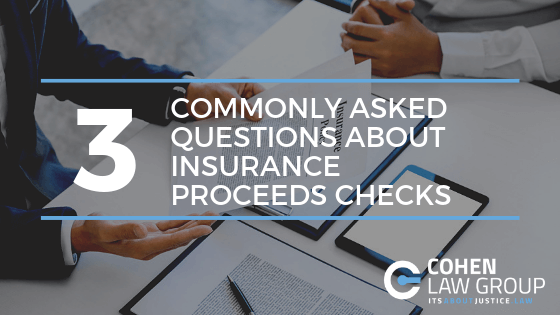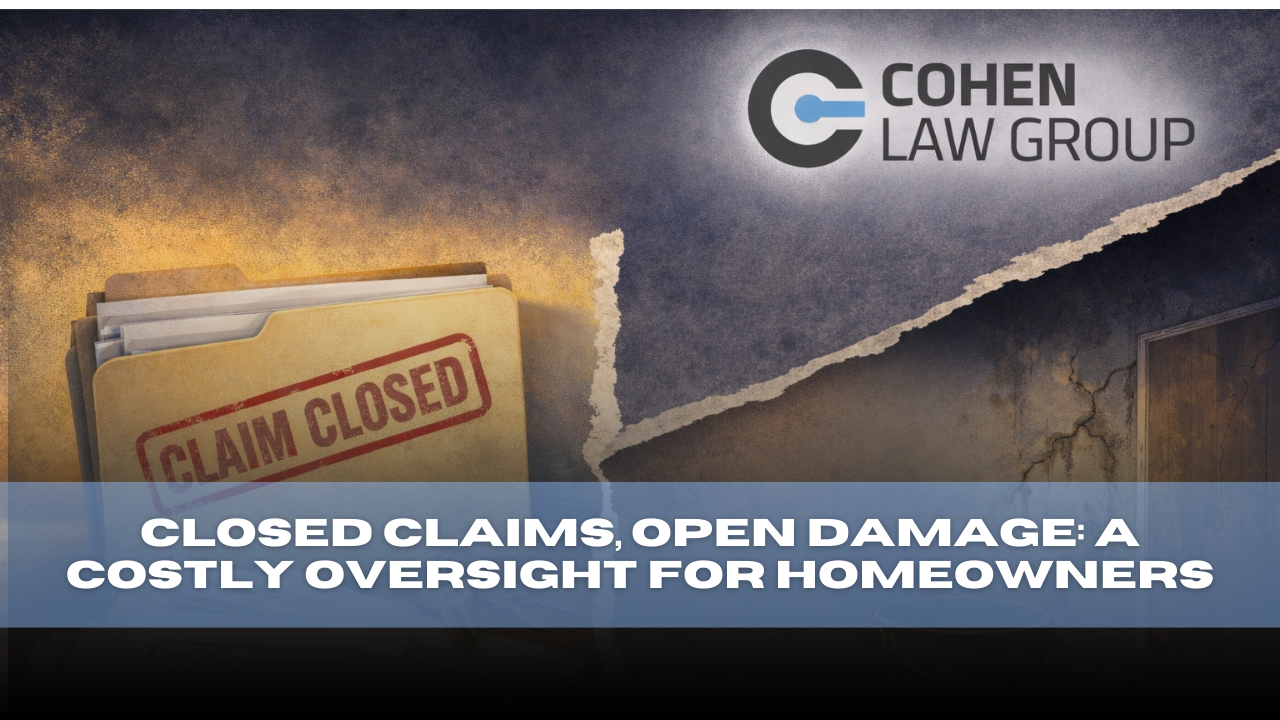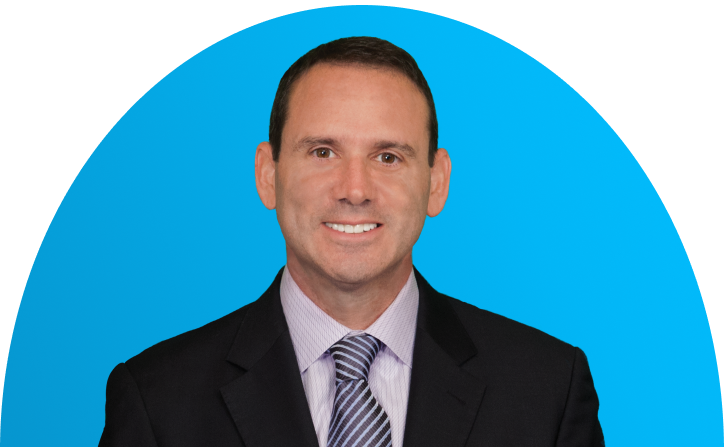3 Commonly Asked Questions About Insurance Proceeds Checks
Insurance policy language is often complicated. The process of filing an insurance claim and receiving insurance proceeds can be overwhelming and exhausting when you’re working hard to get your home or other property back to 100%. But we’re here to help. Here are some common questions we hear at Cohen Law Group.
Number One
My insurance company sent me a check but listed my mortgage company as an additional payee. Why? Who else could be entitled to my insurance proceeds?
In most cases, since you borrowed money to purchase your home, you agreed to insure it and let the mortgage company be listed as co-insured, additional insured, or similar. The mortgage company protects its interest in your property by making sure that the necessary repairs are made to your property.
Typically, in order for you to receive the funds from an insurance proceeds check you will need to send the check over to the mortgage company. Once the mortgage company deposits the check you will need to provide them with proof the work that has been completed on the property. The mortgage company will then release the money. Sometimes this happens in stages, other times it is released all at once.
No one is entitled to your insurance proceeds until you grant authority. As an example, you signed your mortgage providing the mortgage company with an interest in your insurance policy. Therefore, they are entitled to be a payee on the check. If you sign a Direction to Pay, or similar document, with a contractor, the insurance company may put that contractor as a payee on the proceeds check.
Many contractors include language in their contracts directing the insurance company pay them directly from the proceeds of your claim. They will send their bills and contracts directly to the insurance company for payment. In an ideal situation, the insurance company would send them the check for their invoice directly to them. However, more often than not the contractor is listed along with the insured on the check. The contractor will likely have no issue with signing over the check to you, provided you agree to provide them with a check for their invoice.
Number Two
The insurance company sent me a check for X amount of dollars, but I know that this amount will not cover the full amount of my property damage. What do I do?
If the insurance company undervalued the amount it would take to return your property to pre-loss condition tell the insurance company exactly what you need. The first step is getting your own estimate to repair/rebuild. Provide that estimate to your insurance company and request the additional monies that you need to finish the repairs.
You can have one company provide one estimate encompassing all the repairs and replacement you need. Alternatively, you can have individual companies provide you with estimates based upon each individual type of work that needs to be done, think one estimate for roof and another estimate for floor replacement.
When the insurance company provided you with the original check they likely attached an estimate of your damages. Review the estimate and look to see if there are missing items. Did a branch destroy your window but new windows aren’t listed in the estimate? Obtain an estimate for the new window and provide it to the insurance company. It is never a bad idea to obtain your own loss assessment.
Remember to also look at your coverage limits in your policy. Any recovery you seek will be limited to those amounts.
Number Three
Why am I getting multiple insurance checks on one claim?
If your only claim is for the roof and the fence, you will receive two checks. Why? Well because the first check for the roof is drawn from Coverage A of your policy, the dwelling portion of you insurance policy. The check for the fence will be covered from Coverage B of your policy, the other structures portion.
The insurance company will issue checks based on coverage. If you also made a claim for personal property, a third check would be drawn on Coverage C, personal property.
In Conclusion
This article is to serve as a guide but it is by no means to serve as legal advice. Again, insurance policy language is often complicated. If you have any questions or if you need clarification, make sure to review your policy with a lawyer. The best thing you can do if you are having issues or questions with an insurance policy is to get legal advice.
COHEN LAW GROUP
DISCLAIMER: This website is for informational purposes only and does not provide legal advice. Please do not act or refrain from acting based on anything you read on this site. Using this site or communicating with Cohen Law Group through this site does not form an attorney/client relationship. This site is legal advertising. Please review the full disclaimer for more information by clicking here.








